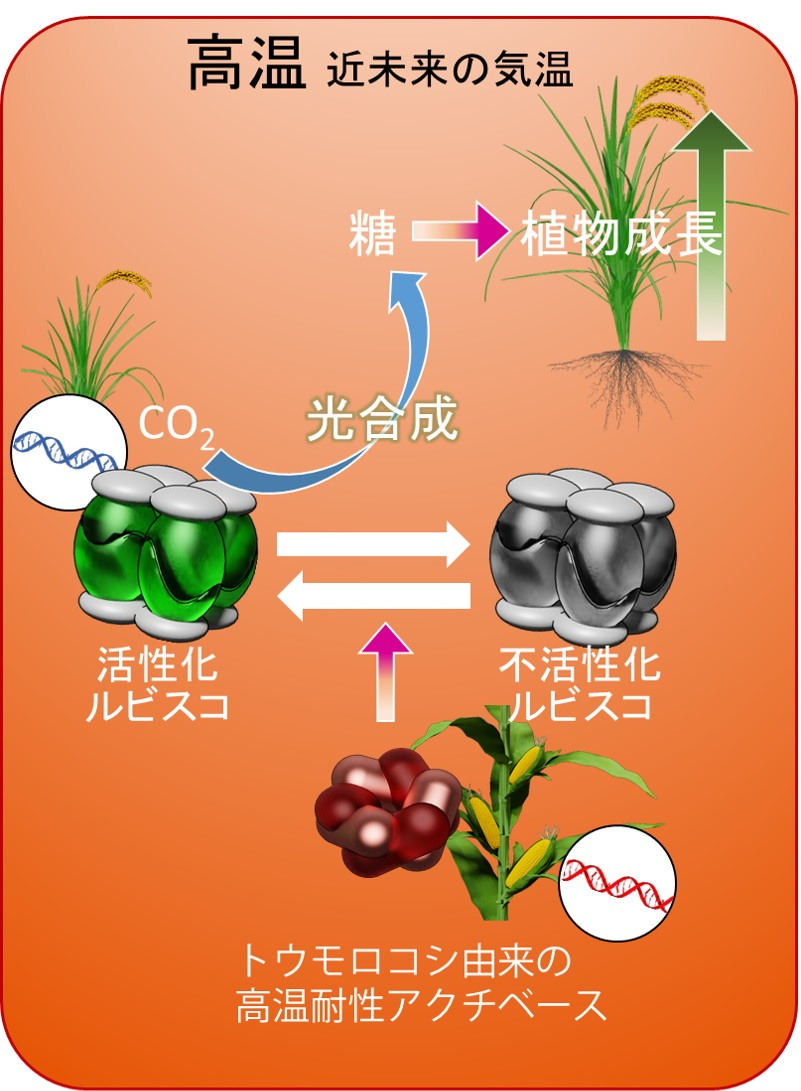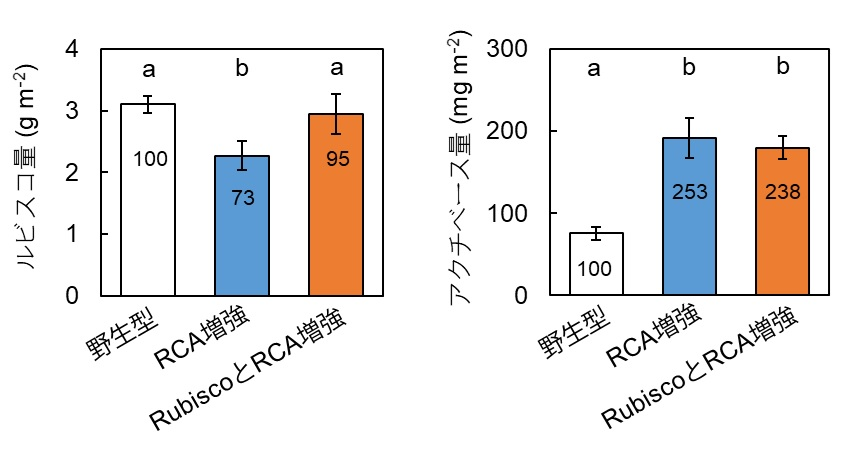

The Univ Tokyo: Rice production adapted to global warming: Productivity improved by 25%
Announcement date: April 28, 2021
University of Tokyo: Graduate School of Agricultural and Life Sciences
Produced highly productive rice adapted to global warming.
Increase rice productivity by 25%
We succeeded in enhancing the photosynthetic function of rice in a high temperature environment and improving rice productivity by 25%.
Nihon Keizai Shimbun
https://www.nikkei.com/article/DGXLRSP609367_W1A420C2000000/
The University of Tokyo succeeds in producing highly productive rice adapted to global warming
Announcement points
Photosynthesis is the most important metabolism that determines plant productivity.
However, it has the weakness of being susceptible to high temperature stress.
Due to the complicated photosynthetic response mechanism to high temperatures, the current situation is that the development of high temperature resistant crops in anticipation of global warming has been delayed.
main research
Photosynthetic CO2 fixative enzyme Rubisco (Note 1),
Rubisco Cuchibase (Note 2), an enzyme that promotes the activation of Rubisco
We created a double transformant rice with the above two enzymes enhanced.
Improves photosynthetic capacity in high temperature environment,
Succeeded in increasing plant weight by 26%.
Results of this research
It is expected to contribute to the cultivation of highly productive crops in the warming environment expected in the near future.
Graduate School of Agricultural and Life Sciences, University of Tokyo
https://www.a.u-tokyo.ac.jp/topics/topics_20210428-1.html
Overexpression of both Rubisco and Rubisco activase rescues rice photosynthesis and biomass under heat stress
Abstract
Global warming
threatens food security by decreasing crop yields through damage to photosynthetic systems, especially Rubisco activation.
We examined whether
co‐overexpression of Rubisco and Rubisco activase improves the photosynthetic and growth performance of rice under high temperatures.
We grew three rice lines
—the wild‐type (WT), a Rubisco activase–overexpressing line (oxRCA) and a Rubisco‐ and Rubisco activase–co‐overexpressing line (oxRCA‐RBCS)—
and analysed photosynthesis and biomass at 25 and 40°C.
Compared with the WT,
the Rubisco activase content
was 153% higher in oxRCA and 138% higher in oxRCA‐RBCS, and the Rubisco content was 27% lower in oxRCA and similar in oxRCA‐RBCS.The CO2 assimilation rate (A) of WT
was lower at 40°C than at 25°C, attributable to Rubisco deactivation by heat.
On the other hand, that of oxRCA and oxRCA‐RBCS was maintained at 40°C, resulting in higher A than WT.
Notably, the dry weight of oxRCA‐RBCS was 26% higher than that of WT at 40°C.
These results show that
increasing the Rubisco activase content without the reduction of Rubisco content could improve yield and sustainability in rice at high temperature.
Graduate School of Agricultural and Life Sciences, The University of Tokyo
https://www.a.u-tokyo.ac.jp/english/topics_e/topics_e_20210428-1.html